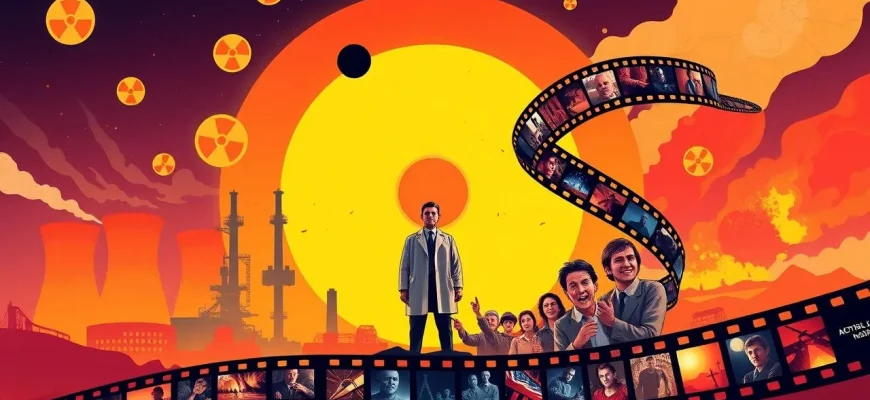- The Day After Trinity (1981)
- Fat Man and Little Boy (1989)
- Oppenheimer (2023)
- The Trials of J. Robert Oppenheimer (2008)
- Trinity and Beyond: The Atomic Bomb Movie (1995)
- The Bomb (2016)
- The Beginning or the End (1947)
- The Atomic Cafe (1982)
- White Light/Black Rain: The Destruction of Hiroshima and Nagasaki (2007)
- Hiroshima (1995)
Delving into the world of nuclear history, these biopic films offer a fascinating glimpse into the lives of those who shaped the atomic age. From the scientists behind the Manhattan Project to the survivors of nuclear disasters, this collection provides not only historical insight but also a profound understanding of the human element in these monumental events. Whether you're a history buff, a film enthusiast, or simply curious about the nuclear era, these films will captivate and educate in equal measure.
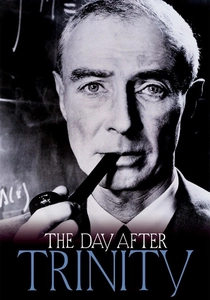
The Day After Trinity (1981)
Description: A documentary that focuses on the life of J. Robert Oppenheimer, particularly his role in the development of the atomic bomb, and the aftermath of its use.
Fact: This film includes interviews with many of the scientists who worked on the Manhattan Project, providing firsthand accounts.
 Watch Now
Watch Now
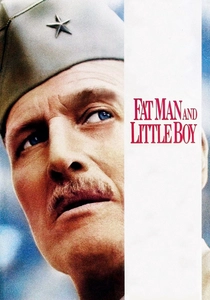
Fat Man and Little Boy (1989)
Description: This film dramatizes the development of the atomic bomb, focusing on the relationship between General Leslie Groves and physicist J. Robert Oppenheimer.
Fact: The title refers to the code names given to the atomic bombs dropped on Nagasaki and Hiroshima.
 Watch Now
Watch Now

Oppenheimer (2023)
Description: This film delves into the life of J. Robert Oppenheimer, the physicist who led the Manhattan Project, exploring his internal conflicts and the ethical dilemmas surrounding the creation of the atomic bomb.
Fact: The film was shot in IMAX to capture the scale and intensity of the Manhattan Project. Christopher Nolan, known for his complex narratives, directed this biopic.
 Watch Now
Watch Now
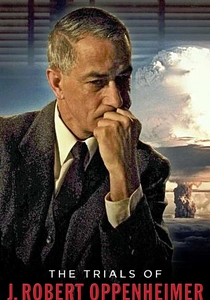
The Trials of J. Robert Oppenheimer (2008)
Description: This film explores the life of J. Robert Oppenheimer, focusing on his security clearance hearings and the political climate of the time.
Fact: It includes interviews with historians and former colleagues of Oppenheimer.
 Watch Now
Watch Now
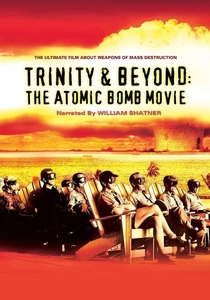
Trinity and Beyond: The Atomic Bomb Movie (1995)
Description: A documentary that covers the history of nuclear weapons testing, from the first atomic bomb test to the hydrogen bomb.
Fact: The film includes rare footage of nuclear tests, some of which had never been seen by the public before.
 Watch Now
Watch Now
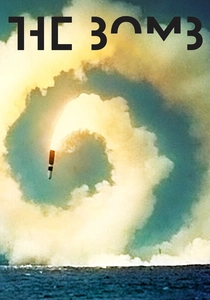
The Bomb (2016)
Description: An experimental documentary that uses no narration, relying on visuals and music to tell the story of the atomic bomb from its inception to its impact on the world.
Fact: The film was created by the Smashing Pumpkins' frontman, Billy Corgan, and filmmaker Kevin McMahon.
 Watch Now
Watch Now
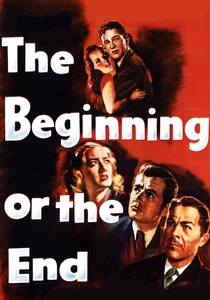
The Beginning or the End (1947)
Description: A dramatization of the Manhattan Project, this film was one of the first to depict the development and use of the atomic bomb.
Fact: It was produced with the cooperation of the U.S. government and includes scenes filmed at the actual Los Alamos site.
 30 Days Free
30 Days Free
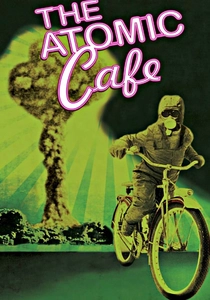
The Atomic Cafe (1982)
Description: A satirical documentary that uses archival footage to explore the American public's perception of nuclear power and the atomic bomb during the 1940s and 1950s.
Fact: The film uses no narration, relying entirely on the juxtaposition of the footage to convey its message.
 30 Days Free
30 Days Free
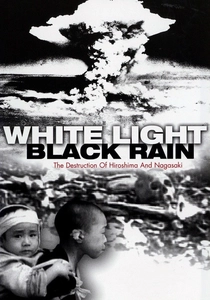
White Light/Black Rain: The Destruction of Hiroshima and Nagasaki (2007)
Description: This documentary features interviews with survivors of the atomic bombings, providing a poignant look at the human cost of nuclear warfare.
Fact: It was directed by Steven Okazaki, who also won an Academy Award for another documentary.
 30 Days Free
30 Days Free

Hiroshima (1995)
Description: This film tells the story of the atomic bombing of Hiroshima from the perspective of both the survivors and the American crew involved in the mission.
Fact: It was broadcast on TV in the U.S. and Japan, marking the 50th anniversary of the bombing.
 30 Days Free
30 Days Free

